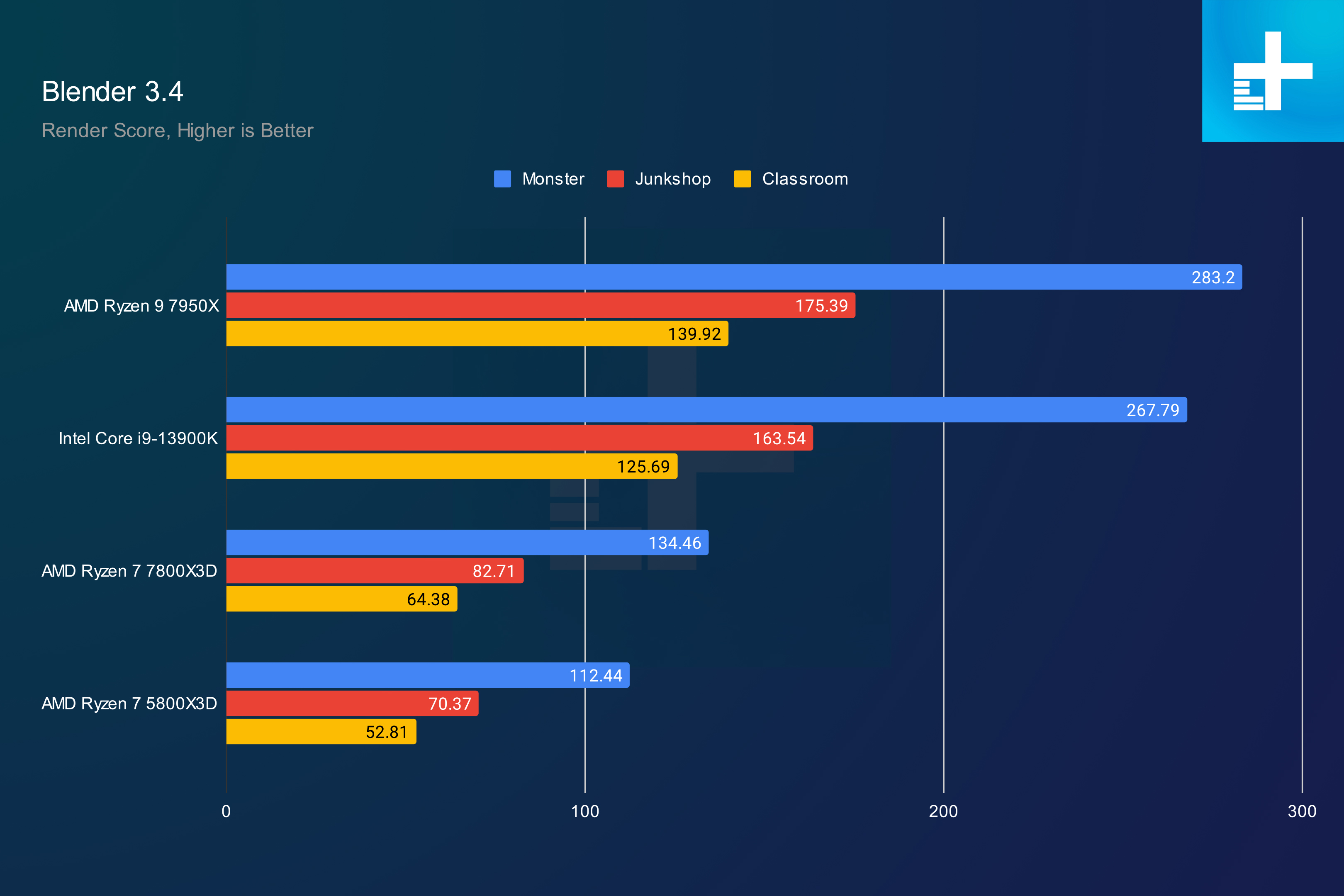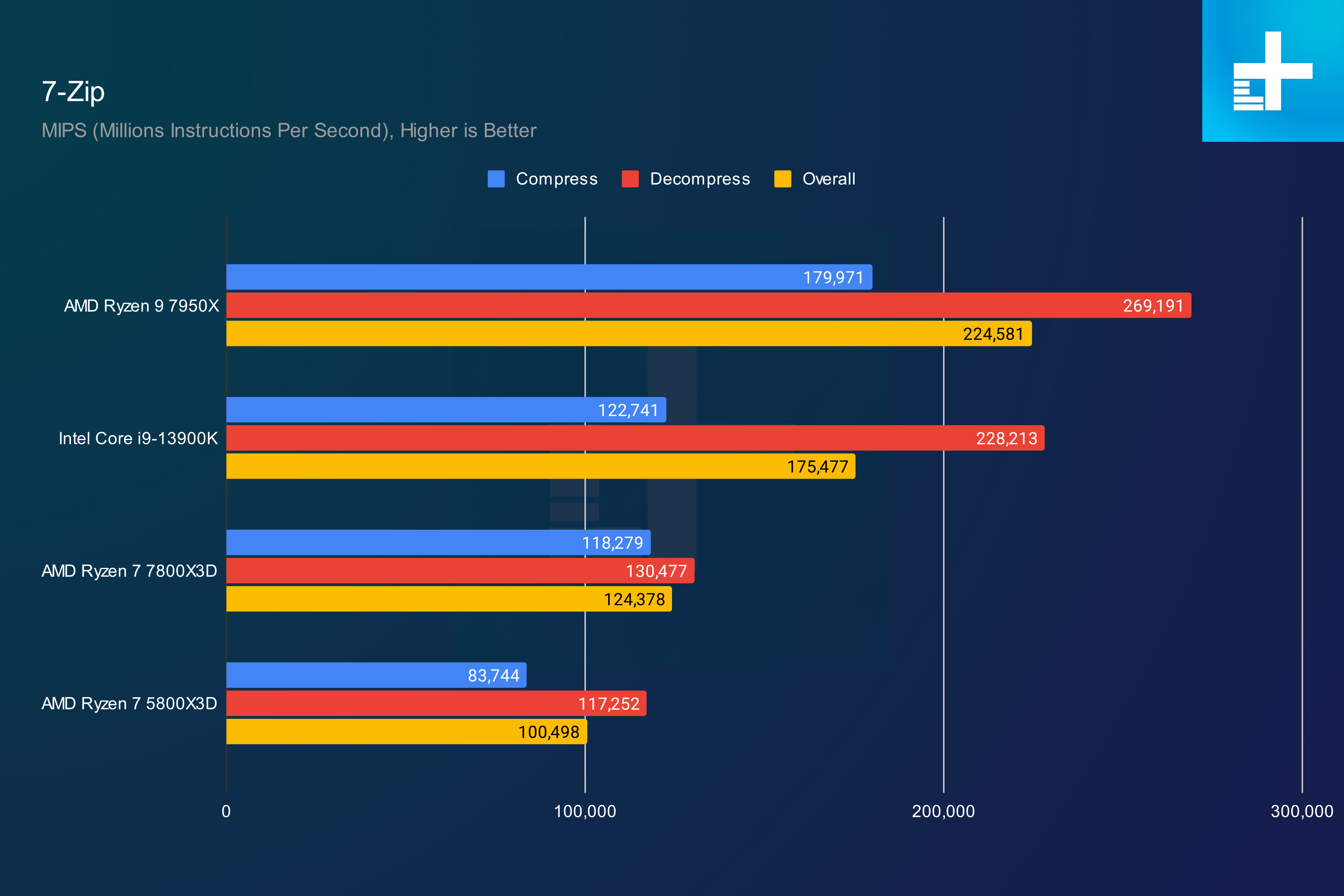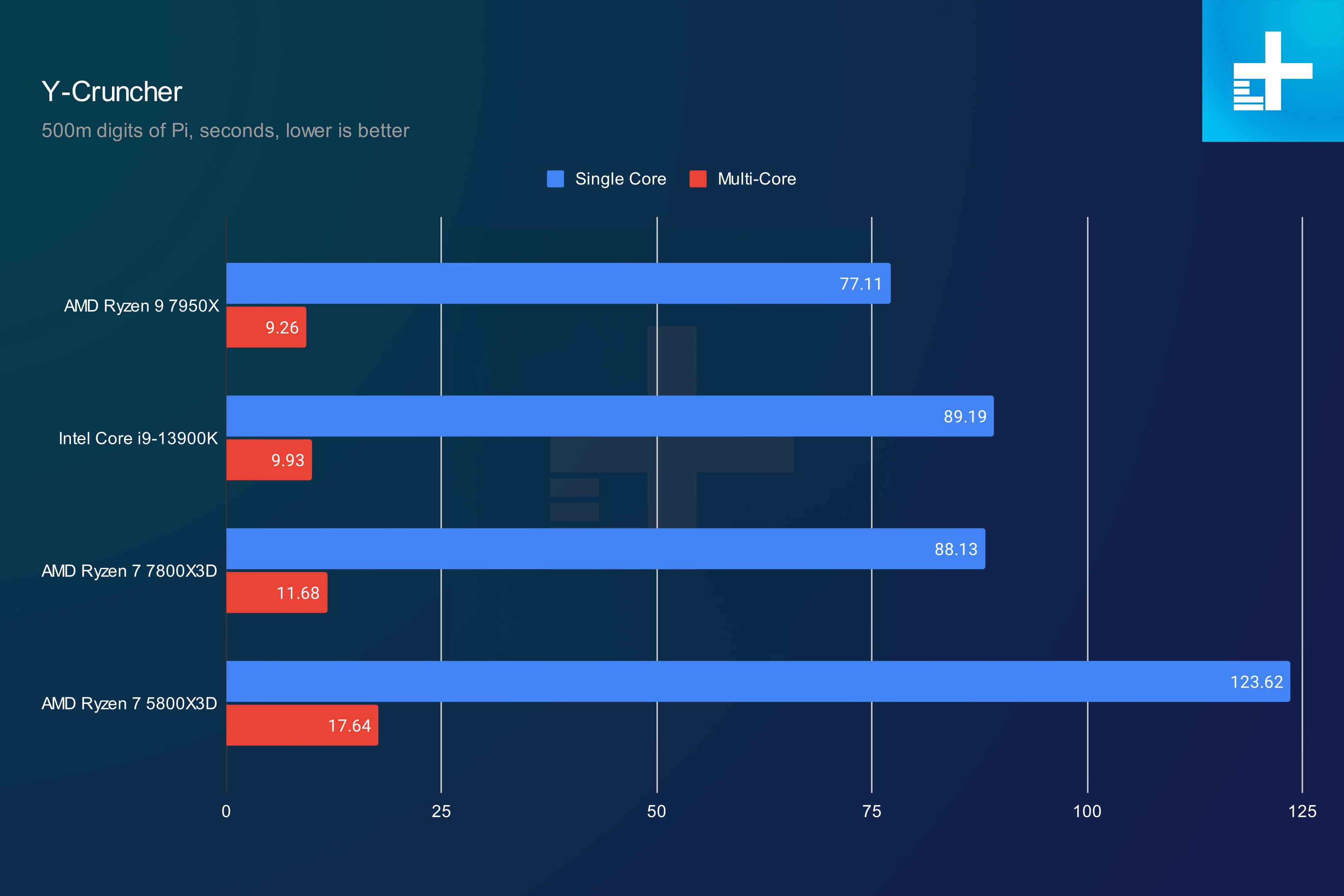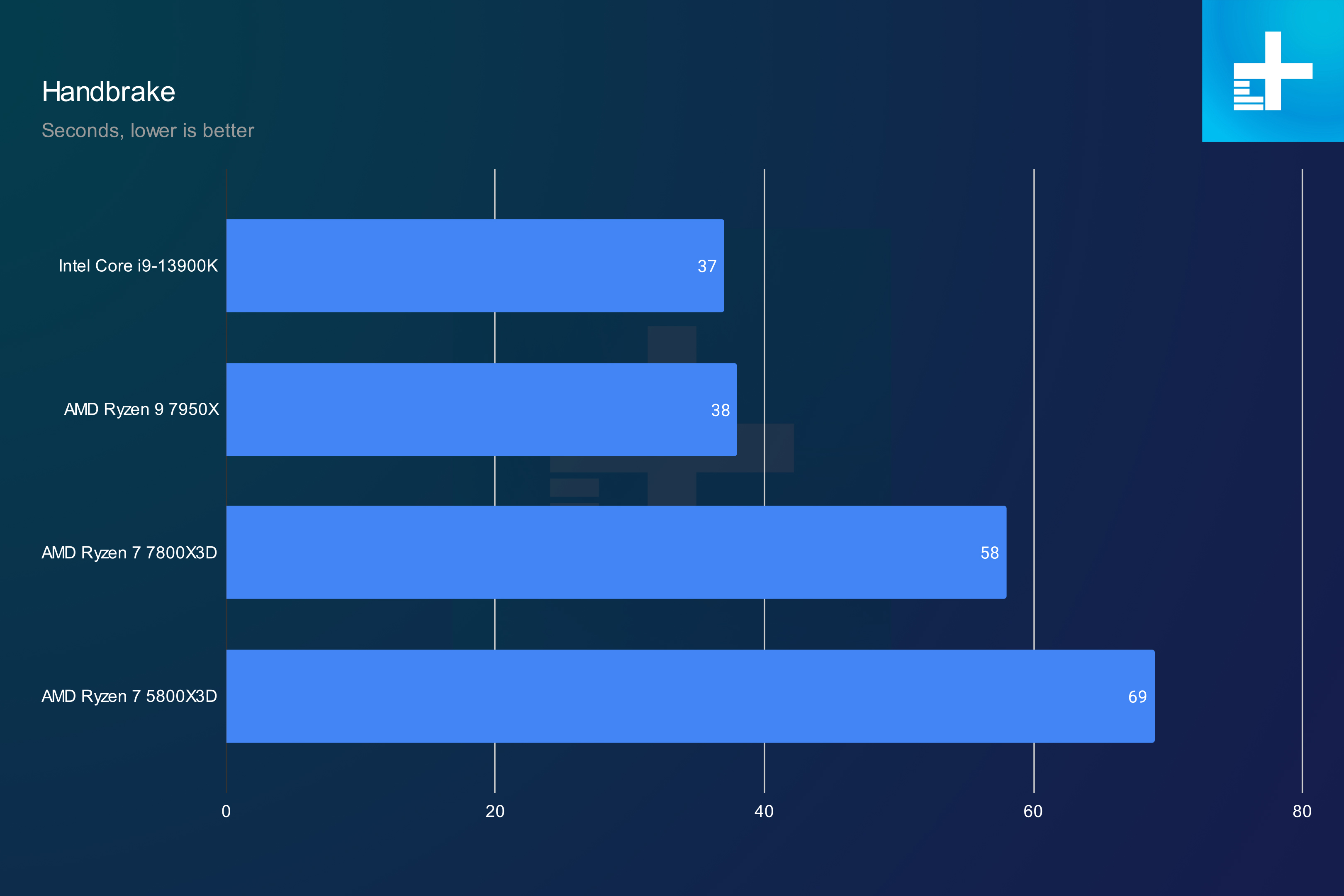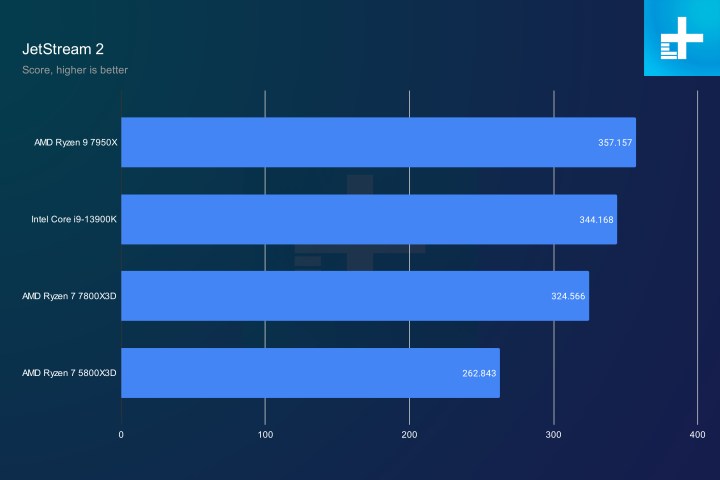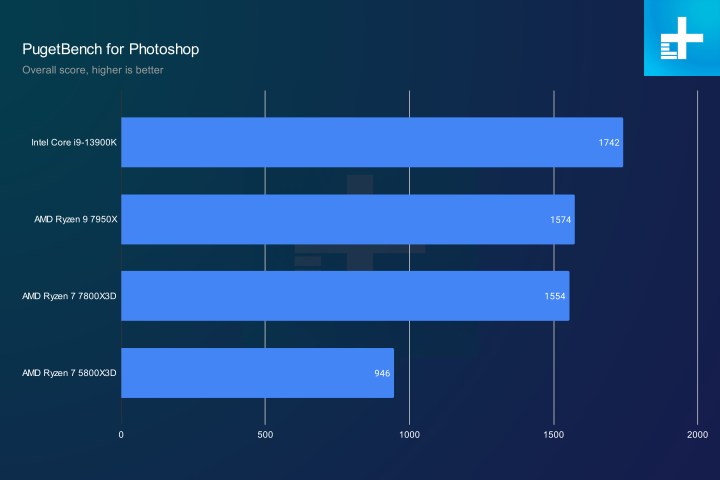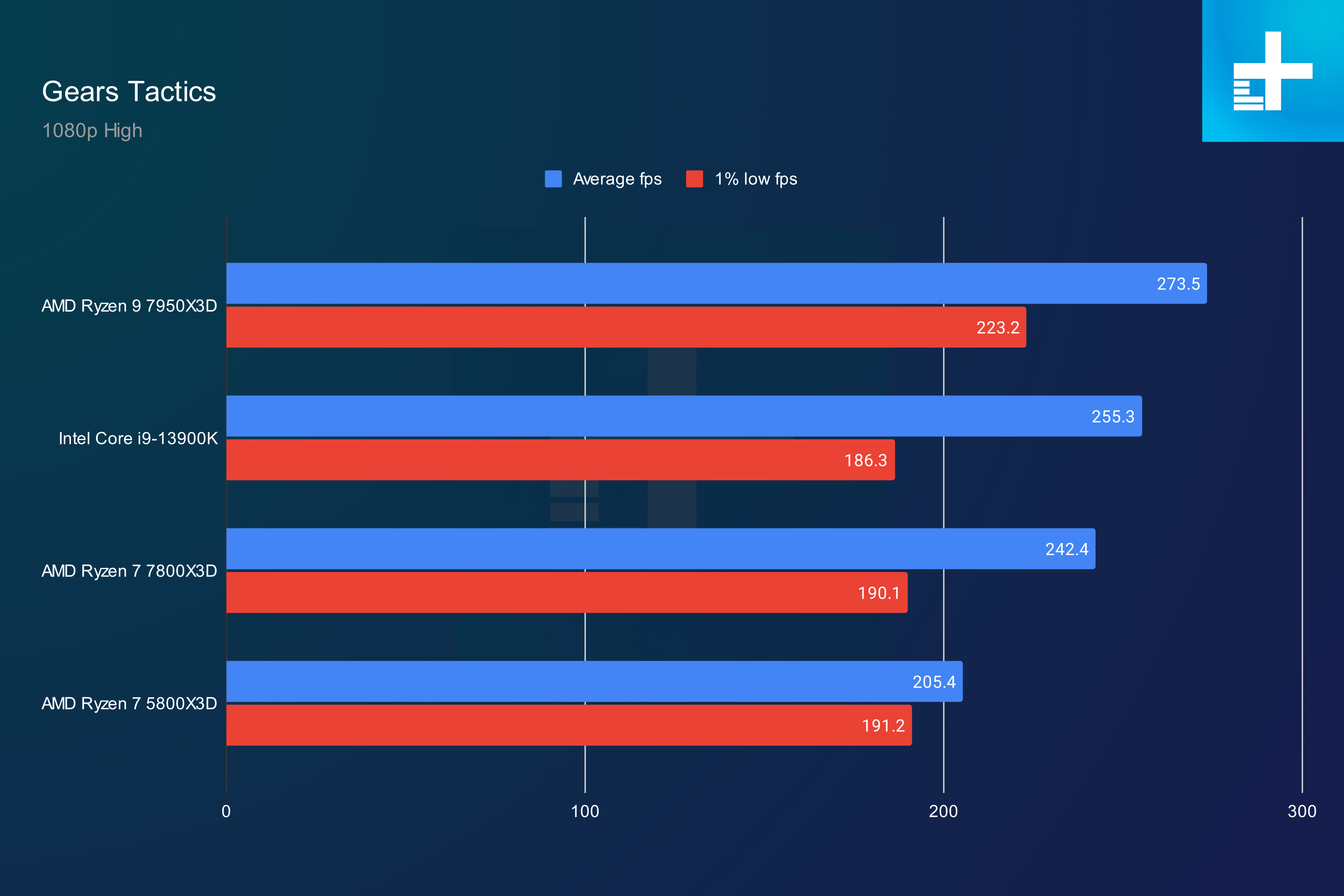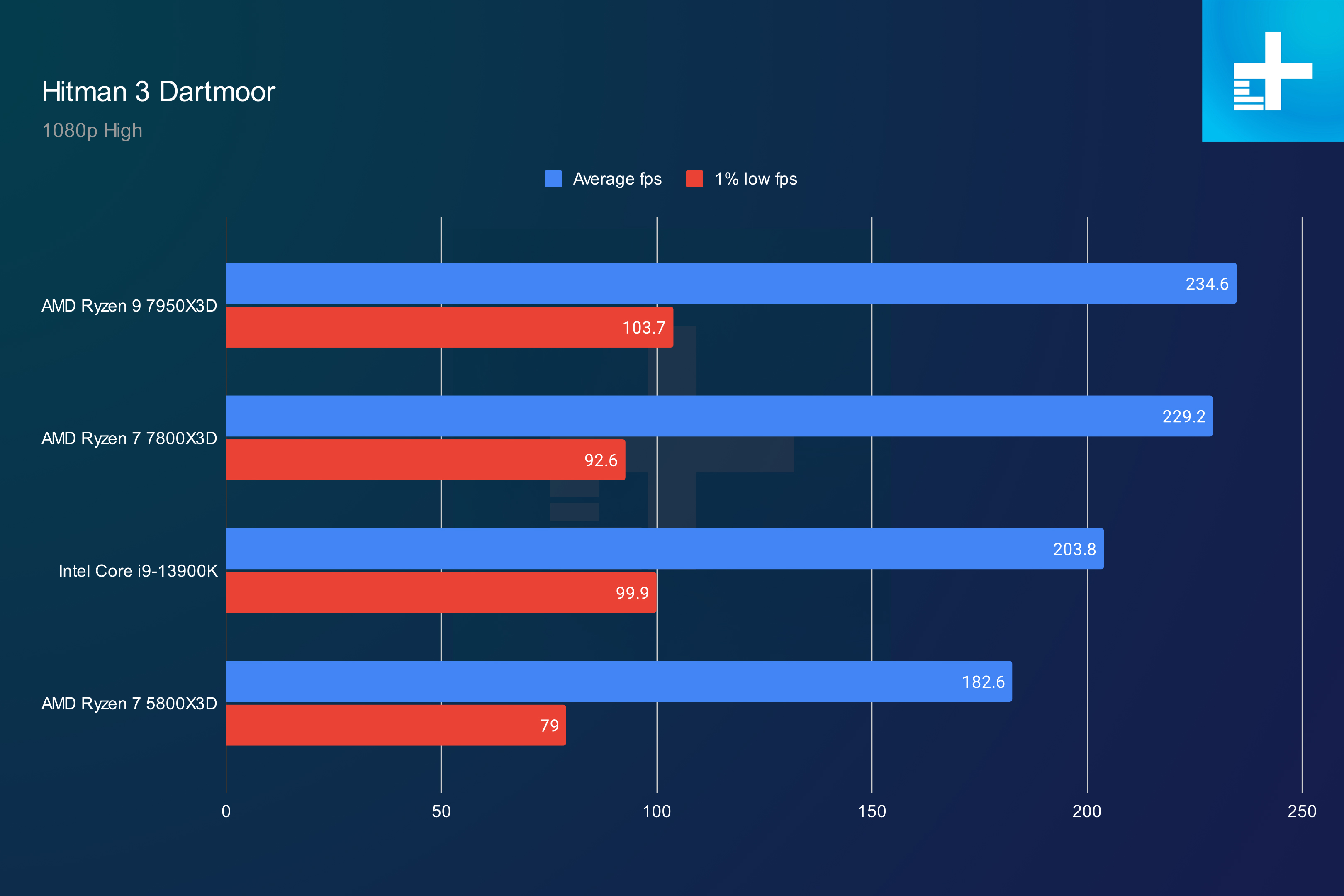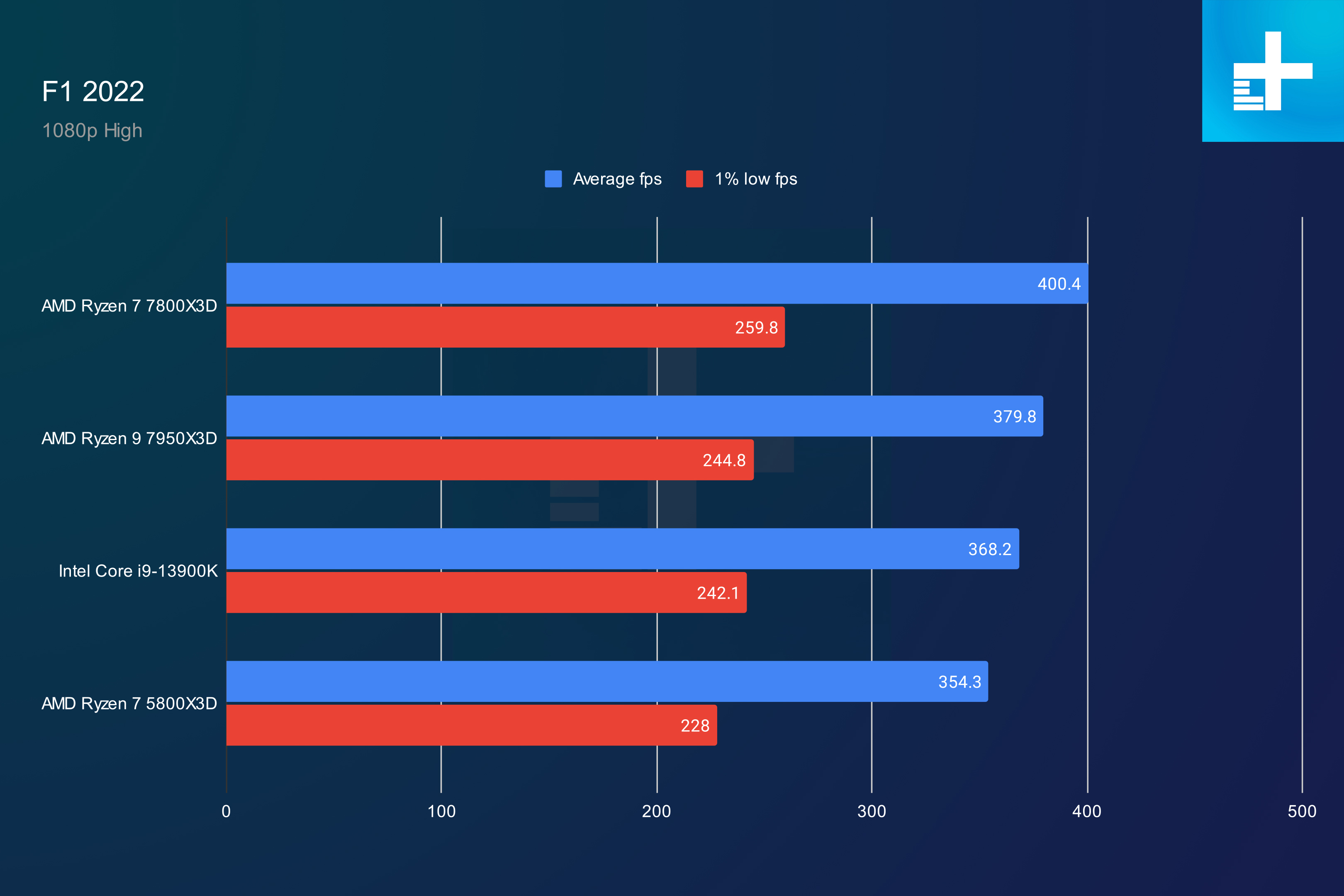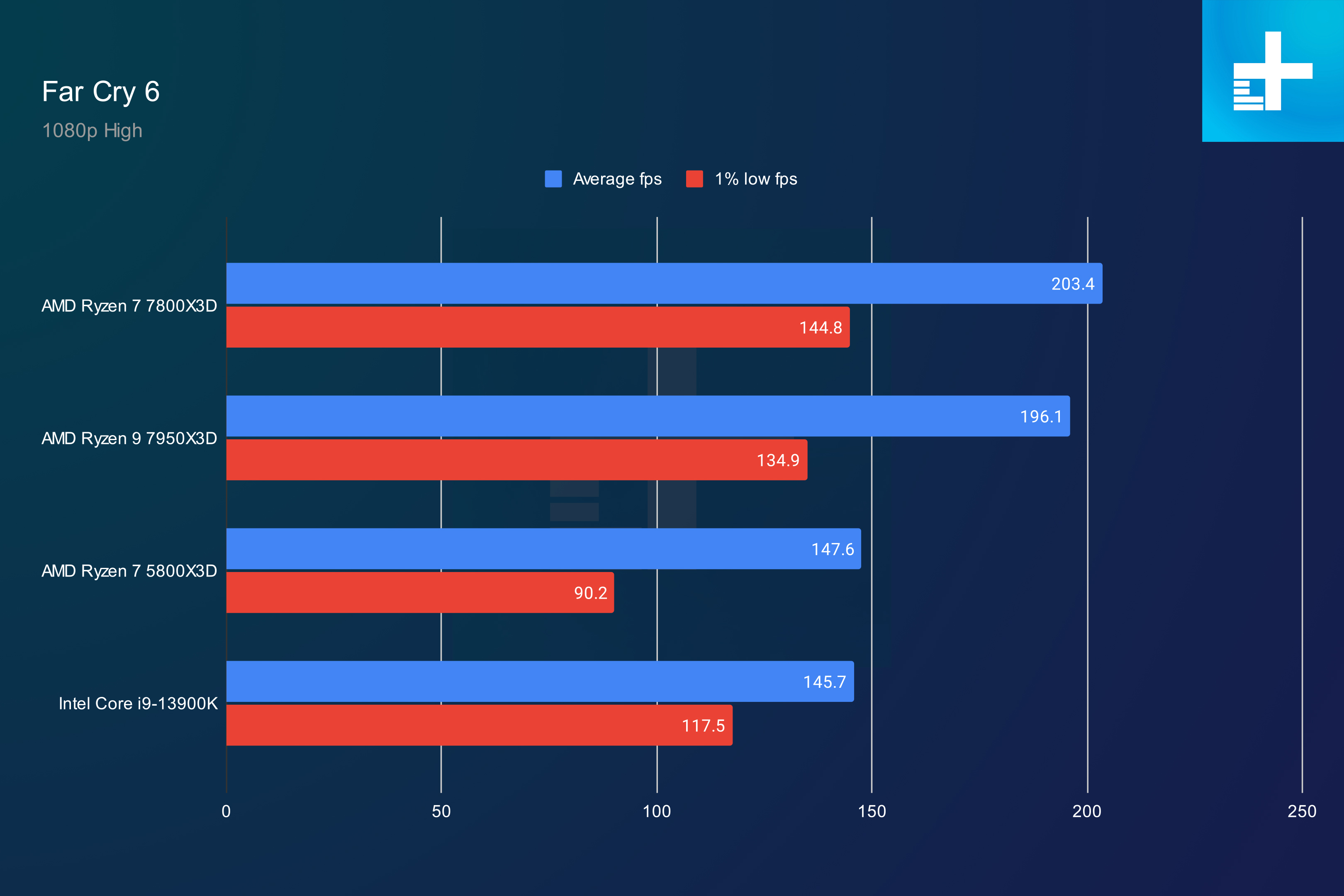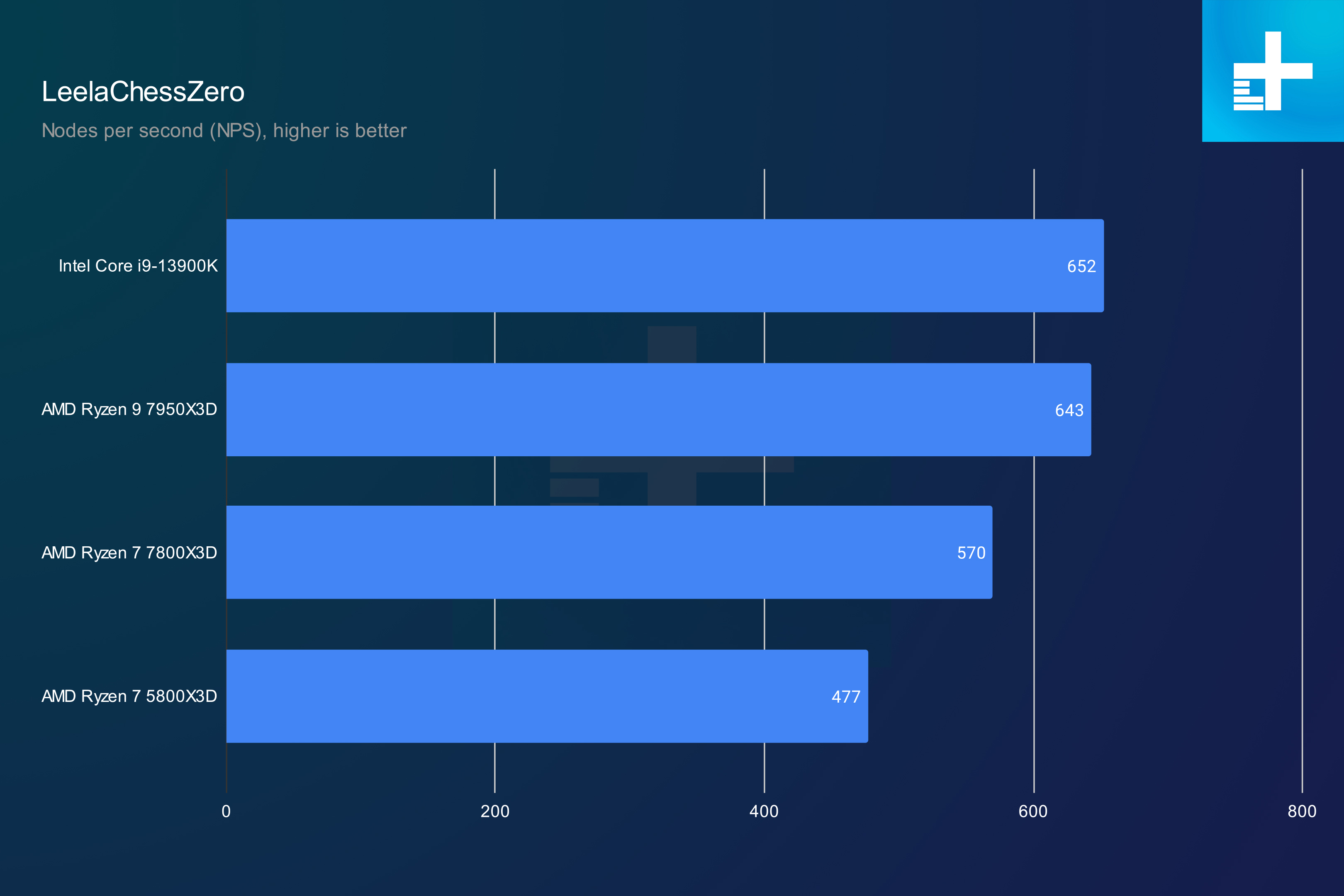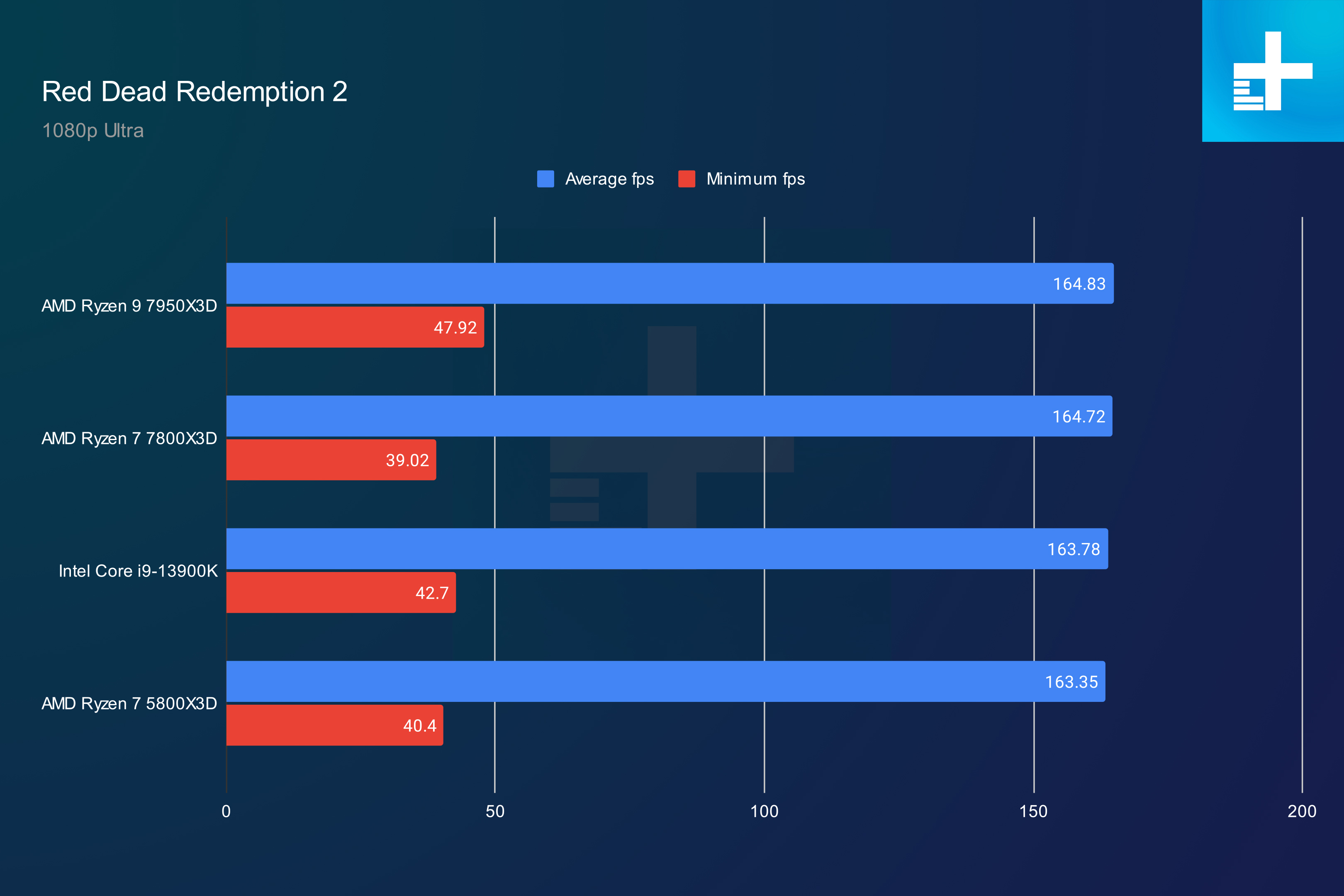
- Chart-topping gaming performance
- Great value
- Solid multi-core and productivity performance
- AM5 is getting cheaper
- Weak single-core performance
I thought it might have been a mistake.
Sure, I assumed the Ryzen 7 7800X3D would be fast, given the proven track record of Zen 4 when combined with 3D V-Cache. In fact, I assumed it would be among the best gaming processors you can buy, especially delivered in this midrange, eight-core package.
But when I saw that it sometimes beat out the Ryzen 9 7950X3D, its much more expensive bigger siblings, I did a double take. But the amount of gaming performance here is the real deal, and that makes the Ryzen 7 7800X3D a go-to choice for a wide swath of PC gamers.
AMD Ryzen 7 7800X3D specs
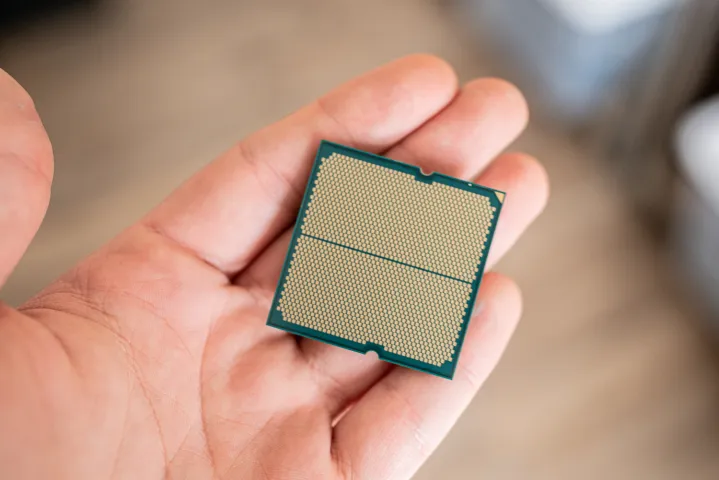
Of all the specs you need to know about on the Ryzen 7 7800X3D, cache is the most important. It features AMD’s 3D V-Cache tech, stacking additional cache on top of the chip to boost gaming performance. The Ryzen 7 7800X3D comes with a total of 104MB of cache. Compare that to the eight-core Ryzen 7 7700X, which comes with just 40MB.
That extra cache doesn’t come free, though. Compared to the Ryzen 7 7700X, the 3D V-Cache chip comes with a lower 5GHz clock speed (the Ryzen 7 7700X boosts to 5.4GHz) and a higher 120-watt power limit. That’s the opposite of what we saw with the Ryzen 9 7950X3D, which came with a power reduction and showcased AMD’s headway in efficiency.
| Ryzen 9 7950X3D | Ryzen 9 7900X3D | Ryzen 7 7800X3D | |
| Cores/Threads | 16/32 | 12/24 | 8/16 |
| Boost clock speed | 5.7GHz | 5.6GHz | 5GHz |
| Base clock speed | 4.2GHz | 4.4GHz | 4.2GHz |
| Cache (L2 + L3) | 144MB | 140MB | 104MB |
| TDP | 120W | 120W | 120W |
| Price | $700 | $600 | $450 |
The good news is that the Ryzen 7 7800X3D doesn’t come with a price increase, clocking in at the same $450 that the Ryzen 7 5800X3D launched at. However, it’s not releasing in a new market.
At the time of publication, Intel’s 13th-gen chips have come down significantly in price, and you can find the Core i9-13900K for around $500 and the Core i7-13700K for around $400. AMD’s processors have come down in price, as well, with the 12-core Ryzen 9 7900X going for slightly less than the Ryzen 7 7800X3D.
Outside of what the spec sheet says, the Ryzen 7 7800X3D is notable for using a single-core complex (CCX). The Ryzen 9 7950X3D and Ryzen 9 7900X3D both used a dual CCX design, forcing AMD to focus the cache on a single CCX. The Ryzen 7 7800X3D doesn’t have that problem, which allows for faster transfers. Ultimately, that translates into higher gaming performance in some titles, which I’ll dig into later.
Test configurations
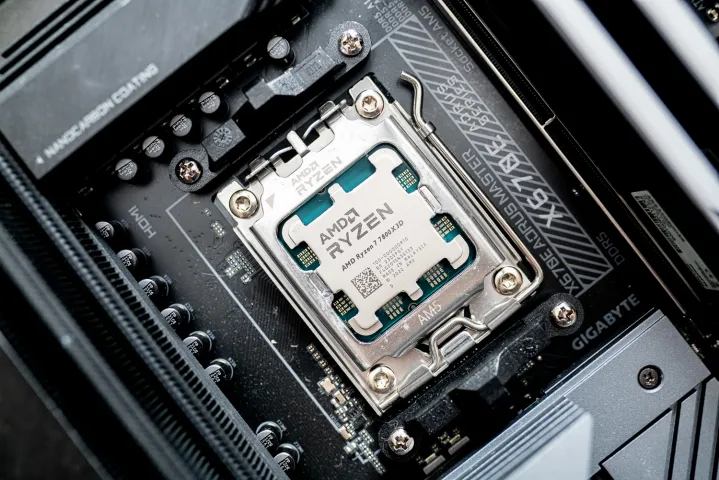
For this review, I built three test beds and tried to balance them as evenly as possible. All three test benches used the RTX 4080 along with a 1TB MP400 NVMe SSD from Corsair. For both the Ryzen 7000 and Intel 13th-gen platforms, I used DDR5-6000 memory, but for Ryzen 5000, I was stuck with DDR4-3200. Otherwise, the platforms were identical from the power supply to the cooler.
| AMD Zen 4 | Intel 13th-gen | |
| CPU | AMD Ryzen 9 7950X / AMD Ryzen 9 7950X3D | Intel Core i9-13900K |
| GPU | Nvidia RTX 4080 Founders Edition | Nvidia RTX 4080 Founders Edition |
| RAM | 32GB Gigabyte Aorus DDR5-6000 | 32GB Corsair Vengeance DDR5-6000 |
| Motherboard | Gigabyte X670E Aorus Master | MSI MPG Z690 Edge |
| CPU cooler | Corsair H150i Elite Capellix | Corsair H150i Elite LCD |
| Power supply | Gigabyte Aorus P1200W | Gigabyte Aorus P1200W |
| Storage | Corsair MP400 1TB SSD | MSI M450 1TB |
In addition to the hardware, I left ReBar turned on, as well as enabled EXPO or XMP for the memory. Just like the Ryzen 9 7950X3D required, there were a few BIOS tweaks to make sure the Ryzen 7 7800X3D was running properly, but otherwise, I left BIOS settings default.
I also left AMD’s Precision Boost Overdrive (PBO) turned off, but keep in mind that the Ryzen 7 7800X3D can automatically overclock with PBO. Unfortunately, traditional multiplier-based overclock is disabled, similar to the Ryzen 7 5800X3D.
Productivity performance
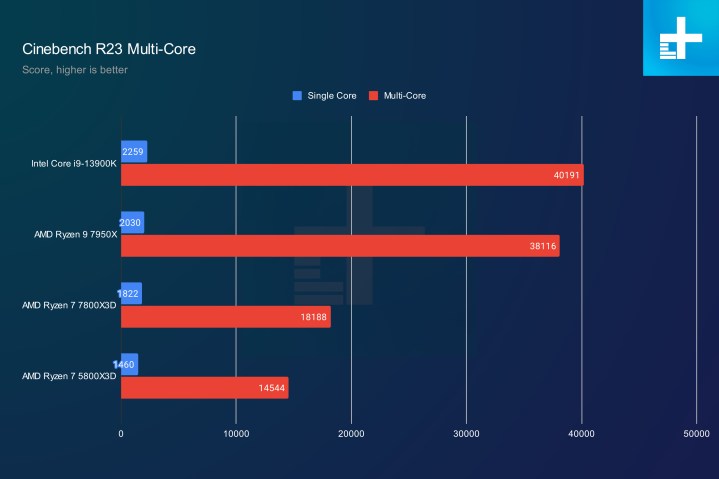
AMD’s Ryzen 7 5800X3D struggled outside of gaming in the previous generation, and AMD focused on improving that area with its new 3D V-Cache processors. The Ryzen 7 7800X3D shows some gains, though it still falls short of the competition. Here, I’m comparing the Ryzen 7 7800X3D to the Core i9-13900K due to Intel’s recent drops in price. You can find Core i9-13900K for around $500 now, putting AMD’s new processor in direct competition with Intel’s flagship.
For a broad look at performance, Cinebench shows the core disparity between the Ryzen 7 7800X3D and flagship chips in action. It also shows much slower single-core speeds compared to the Ryzen 9 7950X, which we didn’t see with the 16-core Ryzen 9 7950X3D.
Other tasks that scale to higher core counts show big gaps, as well, including Blender, 7-Zip, and Handbrake. Even with the extra cache boosting gaming performance, the Ryzen 7 7800X3D is still limited to eight cores. If productivity performance is your main concern, a processor like the Ryzen 9 7900X or Core i9-13900K will serve you better for around the same price.
That’s not to say the Ryzen 7 7800X3D is slow because it’s not. It still shows massive gains over the previous generation in the web-based Jetstream benchmark, and it managed to match the Ryzen 9 7950X in Photoshop (though, Intel still claims the lead in Adobe benchmarks).
Gaming performance
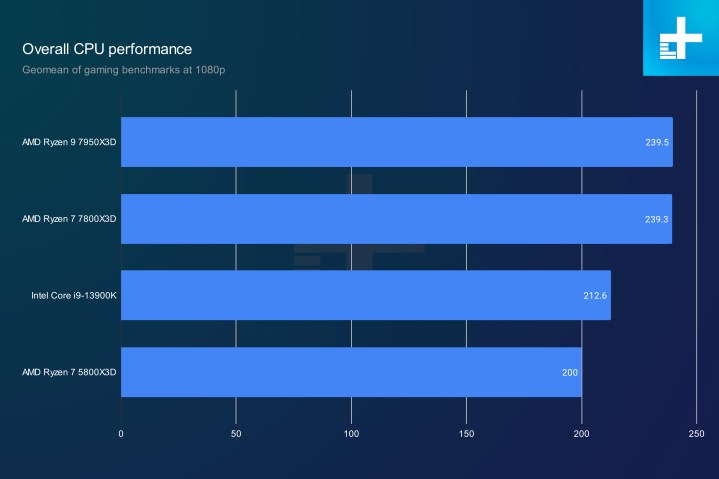
There was some speculation that AMD released the Ryzen 9 7950X3D first because the Ryzen 7 7800X3D, which is about half the price, is just as fast in games. My testing lends some credibility to that assumption. In nearly all games, the Ryzen 7 7800X3D is just as fast, and in some games, it’s even faster.
Synthetic benchmarks still favor a higher core count, which is why the Ryzen 9 7950X3D appears around 20% faster in Time Spy’s CPU test. I wouldn’t put too much stock in this test, though. It also shows that the Core i9-13900K is 15% faster than the Ryzen 9 7950X3D, which is flat-out false.
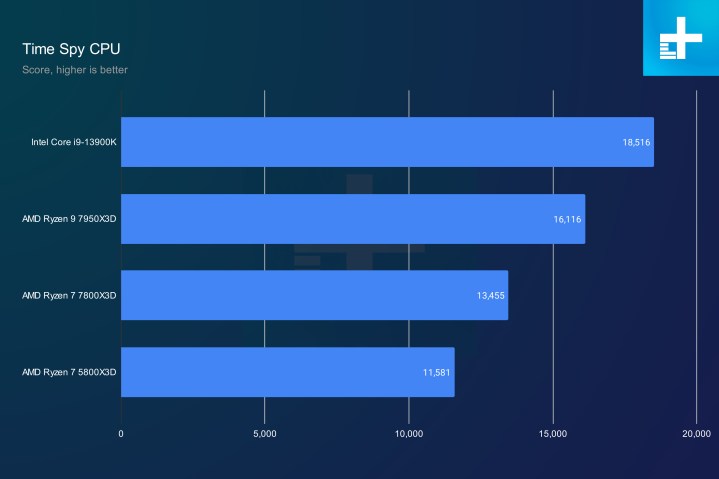
Time Spy isn’t a good representation of performance here, but the 16-core Ryzen 9 7950X3D does have a few advantages over its eight-core sibling. In Gears Tactics, the Ryzen 9 7950X3D was around 13% faster. On the other end, the Ryzen 7 7800X3D showed an 18% lead over the Ryzen 7 5800X3D and was within a few points of the Core i9-13900K.
Similarly, the Ryzen 9 7950X3D squeezed out a win in Hitman 3, but the cheaper eight-core part was within a few frames. This game is a great showcase of Zen 4 and 3D V-Cache at work, with the Ryzen 7 7800X3D outpacing the previous generation by a whopping 26%.
Beyond that, things get weird. In both F1 2022 and Far Cry 6, the Ryzen 7 7800X3D was actually faster than the Ryzen 9 7950X3D. They aren’t negligible leads, either. In Far Cry 6, the Ryzen 7 7800X3D led by 4%, and in F1 22, by nearly 6%.
This isn’t a fluke. I reran my test several times and finally reached out to AMD to sanity check. And sure enough, there are games where the Ryzen 7 7800X3D is simply faster than the more expensive Ryzen 9 7950X3D. AMD says that, overall, it expects the eight-core part to be about 1% slower on average compared to the Ryzen 9 7950X3D.
Why? Well, it’s the same reason we saw the Ryzen 7 7700X outperforming the Ryzen 9 7950X when Zen 4 first launched. AMD says this is due to faster cache-to-cache transfers with a single CCX. The Ryzen 9 parts use two CCXs, while the Ryzen 7 parts only use a single one, which speeds up performance in some games.
If you look at my suite of tests, the Ryzen 7 7800X3D is a decimal point away from the Ryzen 9 7950X3D, and that’s just due to rounding. Outside of that, it blows past the previous generation and competition from Intel. Over the Core i9-13900K, it’s 13% faster, and over last-gen’s Ryzen 7 5800X3D, it’s 20% faster. No question, the Ryzen 7 7800X3D is the gaming CPU to buy right now.
Should you buy the AMD Ryzen 7 7800X3D?
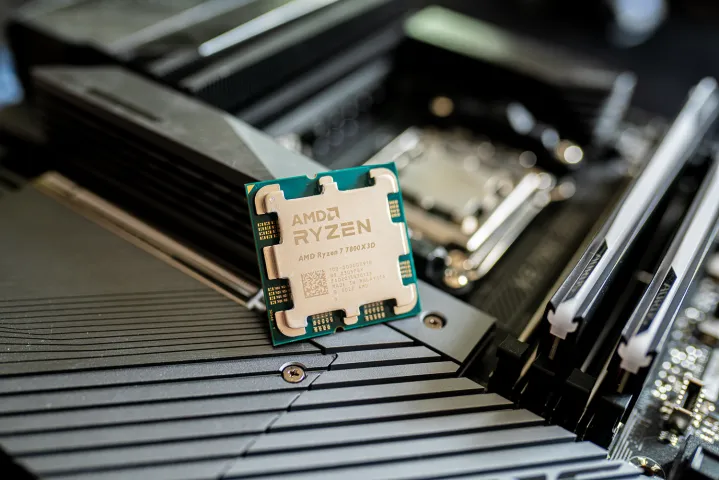
The Ryzen 7 7800X3D is a gaming-focused processor, and there’s no contest in that regard. It’s the fastest gaming CPU you can buy, matching and sometimes even outperforming the more expensive Ryzen 9 7950X3D. You lose a lot in productivity performance, but for gamers, the Ryzen 7 7800X3D is still plenty fast.
It’s a much easier upgrade to recommend now, too. Months past the release of the Ryzen 7000, prices on AM5 motherboards have gone down significantly, and you can find a B650 motherboard for around $150. Similarly, DDR5 prices have nearly halved since late last year, so the overall cost of a platform upgrade is much less.


